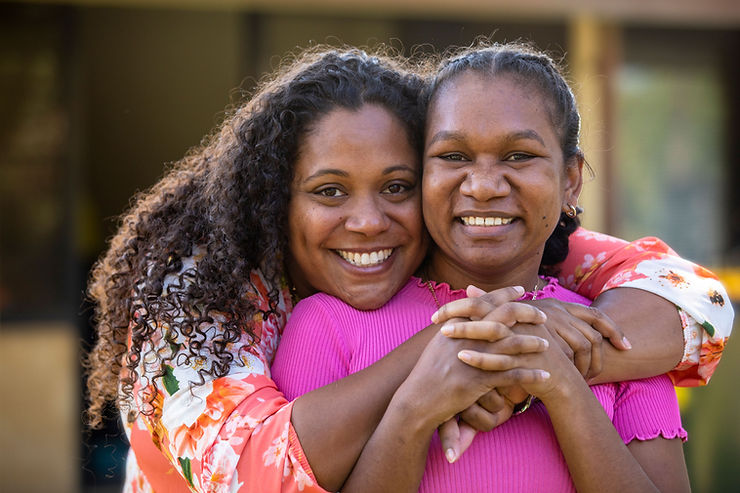The Royal Commission’s Research Report into First Nations People’s Experiences with Disability Support Services
On 26 June 2023, the Royal Commission into Violence, Abuse, Neglect and Exploitation of People with Disability (the Royal Commission) published their report, commissioned by Deloitte, which considers service delivery for First Nations people with disability. The report titled, Research Report – Options to Improve Service Availability and Accessibility for First Nations People with Disability (the Report) can be found here.
The Research Findings
In their research, Deloitte found that, like most other service sectors, First Nations people are over-represented in the disability sector, making up 7% of NDIS participants, however, they are 28% less likely than other people with disability to receive access to appropriate supports and care which meet their needs. First Nations people with disability are also 54% less likely to access support services, compared to 32% of non-Indigenous people. The reasons for this can be attributed to late diagnosis and no early intervention, lack of availability of specialist support services, difficulty navigating service systems due to language and literacy barriers, mistrust, and diagnostic tools not considering a person’s cultural needs.
The research shows that First Nations people with disability experience profound disadvantage compared to other disability support service consumers. First Nations people with disability often have greater care need requirements, more severe disability diagnoses, reside in regional and remote areas impacting their capacity to access appropriate support services and have a history of trauma which can increase the need for, but also complicate, service delivery.
41% of First Nations people with disability accessing NDIS are children under 14 years old. The Report recognises the need to improve service deficits is crucial as these deficits can create lifelong disadvantage compounding the existing inequality experienced by First Nations people. 83% of First Nations people with disability accessing NDIS support services are diagnosed with either a physical or psychiatric disability, showing the importance of early intervention and holistic, culturally appropriate service intervention.
55% of First Nations people with disability reside in regional, rural or remote areas which impacts their access to appropriate and timely support services, and does not give consumers the right to choose support services due to limited availability.
Deloitte found that only 7% of NDIS providers were found to be First Nations focussed, however, there is no evidence to suggest that First Nations service providers offer any differentiated support to mainstream services. First Nations people with disability are growing twice as fast as other non-Indigenous consumers, yet the lack of appropriate support available is astounding. Deloitte has concluded that the lack of available, accessible, and culturally appropriate services is a time sensitive national crisis and that strengthening and growing existing services to meet the needs of First Nations people with disability should be a priority.
Services that are provided to First Nations people with disability have been found to be unsafe, traumatising, and inequitable for consumers because they are unable to provide services with qualifications, quality and culturally safe standards, nor are services being provided in locations where First Nations people with disability reside or to the degree in which such services are required.
How Can Organisations Remain Culturally Safe
Many First Nations people have a history of trauma which is intergenerational and impacts their wellbeing, their lifelong physical, psychological, spiritual, social, and economic outcomes, and their sense of security and safety. Organisations have a duty of care to provide services which are trauma-informed and culturally safe so that they can meet the needs of their consumers and protect them from harm.
Organisations should ensure staff and volunteers are equipped to work with First Nations people with disability by providing adequate training and ensuring policies, procedures and codes of conduct are current, accessible, and understood by everyone within the organisation. Skilled staff who have adequate knowledge and skills to work with vulnerable people are extremely important to assist people living with disability to feel safe, secure, trusted and heard.
It is especially important that organisations to work with First Nations people in a way that allows them self-determination and agency over decisions which are being made. Decision-making should be consultative and should not exclude a consumer’s cultural views and personal history. This can be achieved by ensuring consumers have access to resources which can are inclusive, accessible, and easy to understand by First Nations people with disability and takes into consideration their cultural diversity and disability needs. Developing culturally appropriate resources helps build trust and promotes meaningful inclusion based on respect, trust, and inclusion.
How can Safe Space Legal Help?
The team at Safe Space Legal have extensive disability safeguarding experience. We have worked with a number of organisations to ensure they are meeting their moral and legal obligations including in relation to First Nations people.
Safe Space Legal offer a large range of services including:
- Reviewing and drafting policies, procedures, complaints processes and codes of conduct;
- Delivering safeguarding training to ensure organisations are aware of their obligations and sector-specific requirements;
- Conducting specialist safeguarding investigations into allegations of violence, abuse, neglect and exploitation in the disability and aged care sectors, and child safety investigations including under reportable conduct schemes;
- Providing expert advice on safeguarding and current workplace systems and procedures; and
- Auditing and completing root cause analyses of critical incidents.
First Nations people are over-represented in the disability sector, making up 7% of NDIS participants

